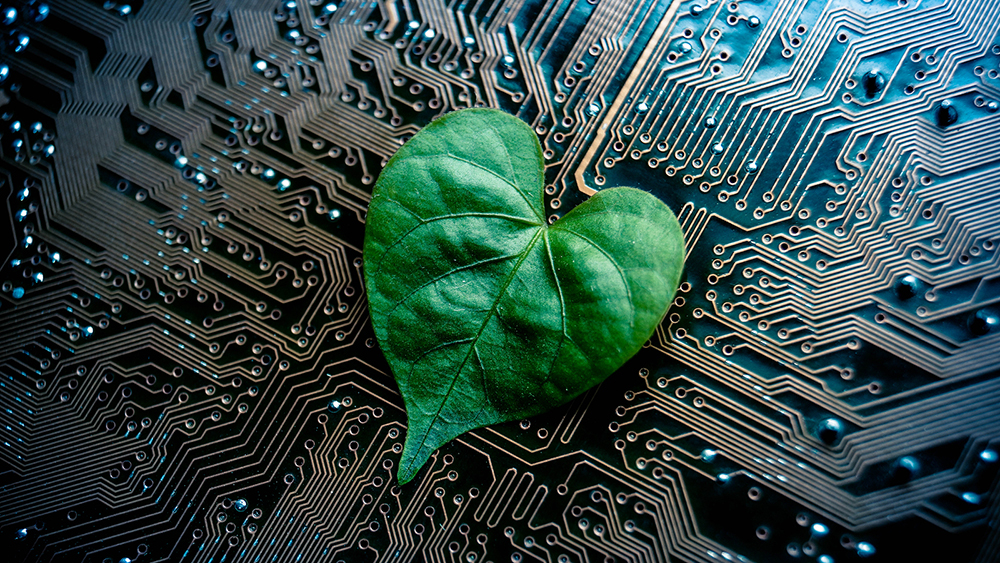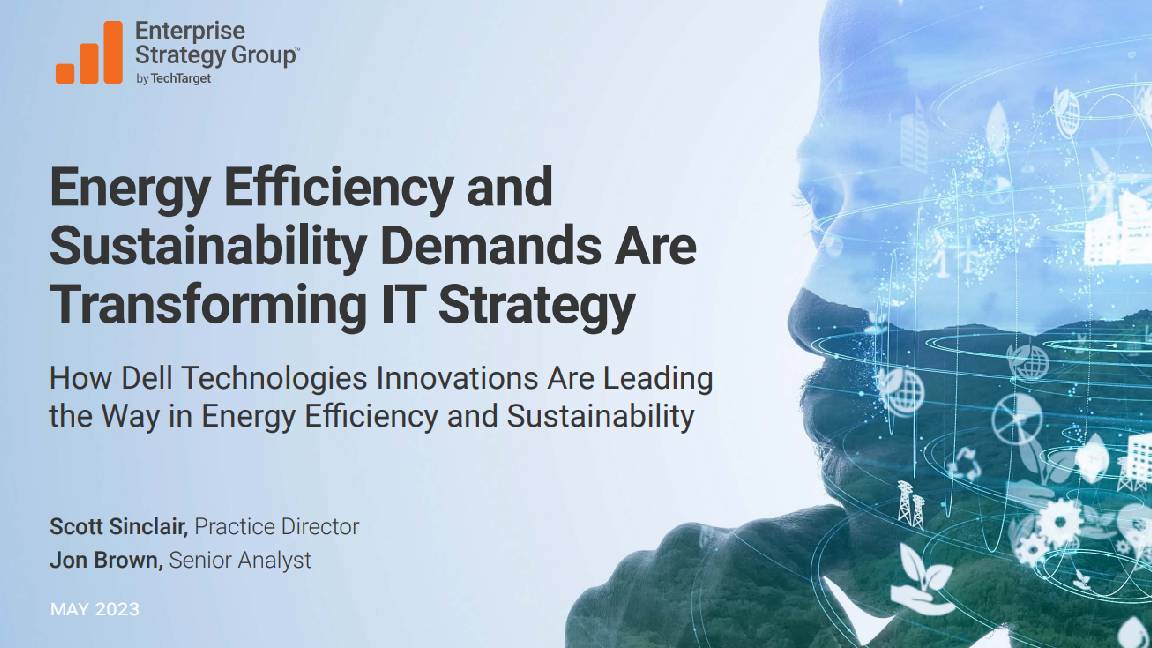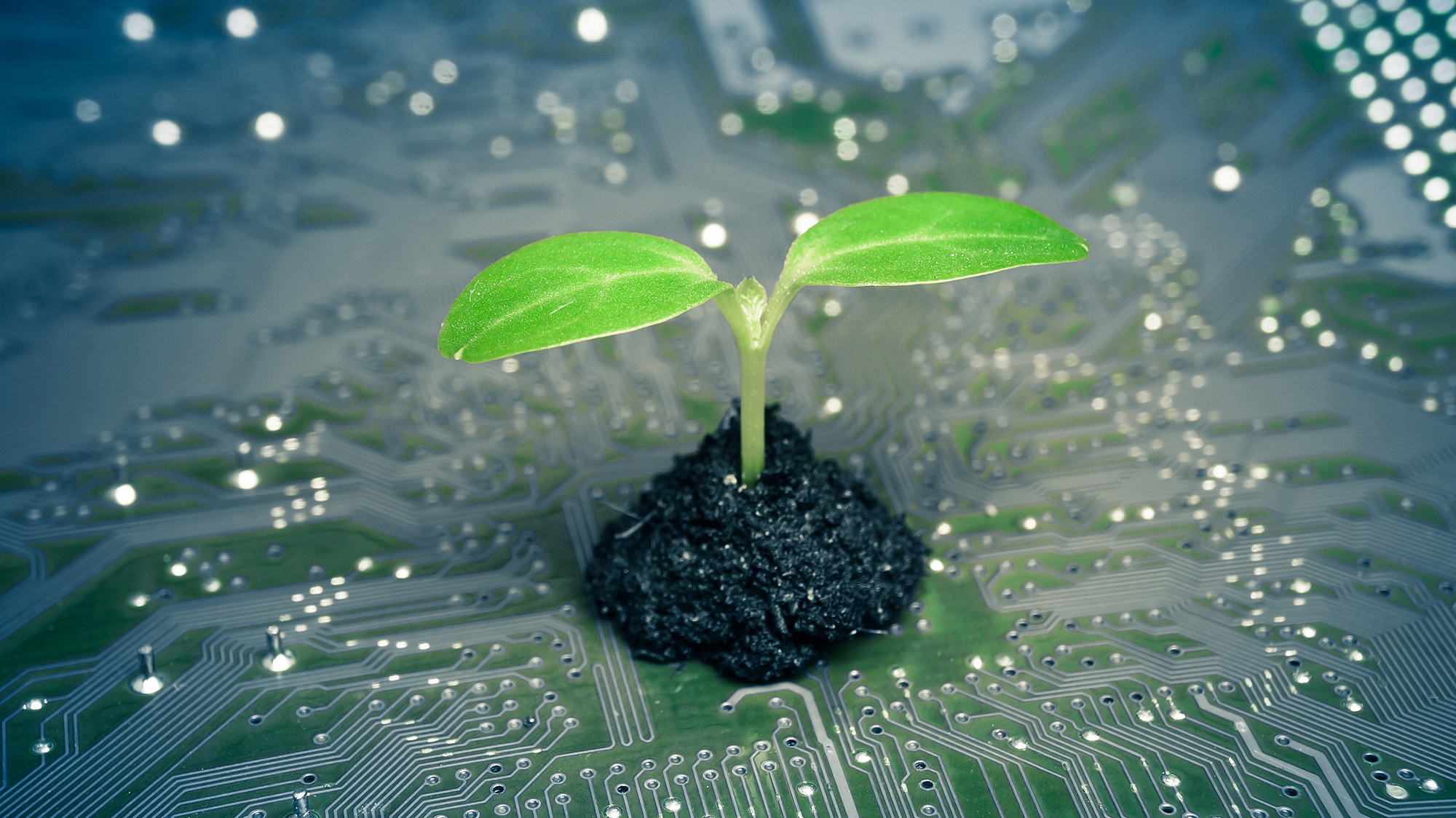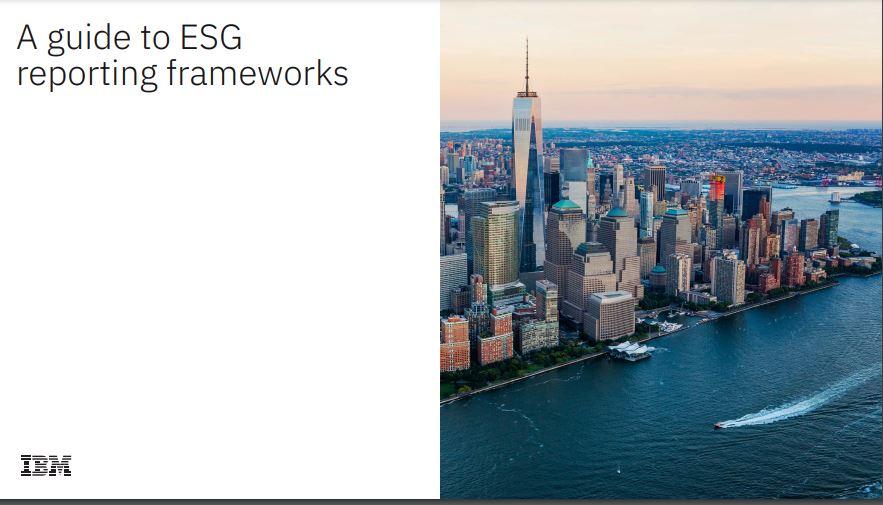How the tech industry is becoming more environmentally friendly
From recycling to renewables, the IT business is starting to pull its socks up

There's no denying that the world faces a plethora of difficult challenges, from poverty to terrorism. One of the most pervasive, however, is pollution. Over the past few decades, the world has become infested with waste, gases and substances that pose a grave risk to life and this planet.
According to Pure Earth, toxic pollution affects more than 200 million people worldwide, and millions of people die annually as a result of this. The fact is, pollution of this kind is entirely manmade. Industrialisation has seen the world become increasingly less green, and there's been a lack of response from governments and other important decision-makers.
That said, more and more people are identifying the threats posed here. You only have to look at 2015 Paris Agreement, which was signed by more than 190 countries to tackle greenhouse gas emissions. Of course, there's still a long way to go, and there's a general consensus that businesses should do more to see change made.
The technology industry has prestige in economies all across the globe, responsible for a large chunk of the world's manufacturing efforts and it's beginning to be proactive towards the topic of pollution. Tech giants like Google and Apple have already made stark commitments to become more environmentally friendly, and many other firms are also looking to kickstart change.
Greener tech giants
Over the years, many of the world's biggest tech companies have come under scrutiny for the negative impact they're having on the environment. Apple happens to be one of them. In 2011, Chinese environmental groups accused the firm of working with environmentally unfriendly manufacturers which were disposing of harmful pollutants inappropriately.
Apple's response was predictable, with it claiming that these accusations were untrue at the time. Since then,though, it's begun to change the way it manufactures goods in a bid to become a greener company. In 2015, it launched a programme to help partners reduce their energy use, power their facilities using renewable power sources and build more environmentally conscious products.
Get the ITPro daily newsletter
Sign up today and you will receive a free copy of our Future Focus 2025 report - the leading guidance on AI, cybersecurity and other IT challenges as per 700+ senior executives
Many of the initiatives Apple has announced since then have been focused on China, mainly because its products are manufactured there. The company's already building solar facilities in the country capable of generating a combined 200 megawatts of energy, including a 170-megawatt facility in Mongolia. According to the firm, these actions will help it offset its manufacturing emissions and in the foreseeable future, it hopes to be running off 100% renewable energy.
Google has made similar commitments. In December 2016, the search giant announced plans for its data centres and offices to be powered by renewable energy from 2017. It's already the world's biggest corporate purchaser of renewable energy, with more than 40% of its power coming from green resources.
Turning to science
There's increasing pressure on companies to do more to help tackle climate change, and IT services and consulting company Capgemini is one example of the companies rising to this challenge. Its UK operation recently announced a new science-based target to cut carbon emissions by 20% per employee by 2020, growing to 40% by 2030.
Capgemini UK has become the first IT services provider to publish an actionable report backed by leading scientists and it's one of only 28 worldwide companies to have targets approved by the Science Based Targets initiative. The latter is an organisation that works with companies to set emission reduction targets that coincide with the 2015 Paris Agreement, which aims to keep temperatures below the 2C threshold.
James Robey, global head of corporate sustainability at Capgemini, says sustainability is an important part of the company and that it's managed to cut carbon emissions by 21 per cent since 2008. However, he thinks the company can do a lot more. "As a global technology, consulting and outsourcing services company, Capgemini is committed to enabling a positive future for all," he tells IT Pro.
"Our Positive Planet programme forms part of this commitment, aiming to reduce our environmental impact, while working to enable our clients, suppliers and people to do the same. We've reduced carbon emissions by 21% since 2008, a figure we aim to cut by a further 20% by 2020, focusing on reducing our travel emissions and energy use."
Capgemini isn't just making big claims for marketing purposes. It's actually out there pushing for change. For instance, it's helped set up an initiative to promote sustainability worldwide and it owns one of the world's most sustainable data centres. "Our greatest opportunity for sustainability lies in the digital solutions we deliver to our clients through the development of new technologies. We're a founding member of the Net Positive group and have committed to reducing three times as much carbon emissions in our ecosystem as we generate through our own operations," adds Robey.
"Our Merlin data centre, for example, is one illustration of the innovations we have employed. It's recognised as one of the most sustainable in the world, powered by renewable energy and constructed on a brownfield site with 95% recyclable materials. Projects such as this and TravelWell, our award winning holistic approach to reducing travel emissions, demonstrate our commitment to addressing sustainability issues for our clients and business."
Giving tech a new lease of life
Manufacturing electrical items isn't only an expensive process, but it can also have a negative impact on the environment and, of course, devices only last for so long; once a piece of tech has reached the end of its life, it's normally rendered useless and sent to the landfill. That's never a good thing, but 3 Step IT UK is looking to make things right.
The company is supporting the circular economy - an industrial concept that promotes sustainable resource productivity - through IT lifestyle management. Instead of seeing devices sent to landfill, it refurbishes them so they have a new lease of life. This initiative was recently commended by Business Green as IT Project of the Year.
Jason Skidmore, CEO of the firm, believes that all tech can be refurbished or used as parts for new products. "To manufacture just one computer and monitor takes roughly 530lb (240kg) of fossil fuel, 48lb (21.8kg) of chemicals, and 1.5 tonnes of water. Despite this resource hungry process, the United Nations estimate that we discard 20-50 million metric tonnes of e-waste every year," he explains.
"While there is no doubt that more needs to be done to recycle IT hardware responsibly, it's also vital that we extract as much value as possible before sending equipment to its grave. 3 Step IT is a firm believer that one man's trash, is another man's gold and its business model is designed to ensure that IT equipment remains in circulation for as long as it's useful."
The company has so far refurbished more than 300,000 devices and it hopes to continue on this journey over the next few years. "By refurbishing and remarketing over 95% of the devices that its clients return, it ensures that equipment is reused, rather than recycled. In 2016, 3 Step IT handled 360,000 devices and its programme was highly commended by BusinessGreen in the 'IT Project of the Year' category," he continues.
Technology plays a huge role in modern society and life would probably feel odd without devices such as smartphones, tablets and computers. But the fact is, as an industry, technology has been somewhat unsustainable in the past. Luckily, companies are beginning to see the threats posed by pollution and are putting mechanisms in place to help create a greener planet.
Nicholas Fearn is a freelance technology journalist and copywriter from the Welsh valleys. His work has appeared in publications such as the FT, the Independent, the Daily Telegraph, the Next Web, T3, Android Central, Computer Weekly, and many others. He also happens to be a diehard Mariah Carey fan. You can follow Nicholas on Twitter.
-
 Bigger salaries, more burnout: Is the CISO role in crisis?
Bigger salaries, more burnout: Is the CISO role in crisis?In-depth CISOs are more stressed than ever before – but why is this and what can be done?
By Kate O'Flaherty Published
-
 Cheap cyber crime kits can be bought on the dark web for less than $25
Cheap cyber crime kits can be bought on the dark web for less than $25News Research from NordVPN shows phishing kits are now widely available on the dark web and via messaging apps like Telegram, and are often selling for less than $25.
By Emma Woollacott Published
-
 Beyond the upgrade: How to maximize IT investments and minimize waste
Beyond the upgrade: How to maximize IT investments and minimize wasteHow to maintain optimal performance and productivity with your fleet of hardware and stave off the next upgrade cycle for a bit longer
By ITPro Published
-
 Energy efficiency and sustainability demands are transforming IT strategy
Energy efficiency and sustainability demands are transforming IT strategywhitepaper How Dell Technologies innovations are leading the way in energy effiency and sustainability
By ITPro Published
-
 Energy efficiency and sustainability demands are transforming IT strategy
Energy efficiency and sustainability demands are transforming IT strategywhitepaper How Dell Technologies innovations are leading the way in energy effiency and sustainability
By ITPro Published
-
 Your guide to smarter printing: 2024 edition
Your guide to smarter printing: 2024 editionWhitepaper Making smarter printing simple for all businesses
By ITPro Published
-
 How to empower employees to accelerate emissions reduction
How to empower employees to accelerate emissions reductionin depth With ICT accounting for as much as 3% of global carbon emissions, the same as aviation, the industry needs to increase emissions reduction
By Fleur Doidge Published
-
 How much say does IT really have in sustainability initiatives?
How much say does IT really have in sustainability initiatives?ITPro Network Vendors are ready to proclaim their green credentials, but as members of the ITPro Network explain, making changes on the ground can be complex
By Jane McCallion Published
-
 ESG: Designing the ideal digital work experience for the next generation of innovators
ESG: Designing the ideal digital work experience for the next generation of innovatorsWhitepaper What users want, why it's critical to give it to them, and how the whole organization can benefit
By ITPro Published
-
 A guide to ESG reporting frameworks
A guide to ESG reporting frameworksWhitepaper Guidelines to assist with your approach to ESG reporting
By ITPro Published